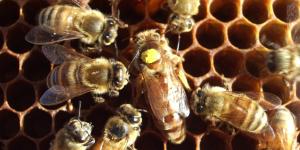Common Diseases of Maltese Dogs



Animal file: Maltese
It's crucial to know about the different illnesses that are likely to affect your Maltese in order to prevent them and react to any symptoms in time. Some signs of disease, such as brown ears, diarrhea, an allergy or vomiting, are easy enough to recognize; if you notice these symptoms in your Maltese dog, go to a vet as soon as possible.
However, some diseases are more tricky to notice and identify. In this AnimalWised article we'll discuss the most common diseases of Maltese dogs, as well as those that particularly affect this breed. Infectious diseases are the most widespread, as tends to happen with all dogs in general. Some hereditary diseases, on the other hand, occur more regularly in some breeds than others.
Infectious diseases that affect Maltese dogs
Viral diseases are undoubtedly the most dangerous for all breeds of dogs, because many of them can turn out to be fatal or leave them suffering significant consequences for the rest of their lives. For instance, diseases like rabies and canine distemper can lead to severe neurological issues.
Fortunately, nowadays there are some very effective preventive treatments, such as vaccines. Dogs are more and more often vaccinated against rabies, canine distemper, parvovirus, canine hepatitis, and diseases caused by canine coronavirus. These viral infections have been greatly reduced in the countries where vaccines are available, and outbreaks are much rarer than they used to be. Make sure your Maltese dog has been properly vaccinated to avoid these serious health issues.
Among the infectious diseases caused by bacteria we can find kennel cough and leptospirosis. While these last ones can be treated with antibiotics, there are also some very effective vaccines available. It should be noted that leptospirosis can also be transmitted to humans, making vaccination even more crucial. Here you can take a look at the recommended vaccination schedule for puppies and adult dogs.

What hereditary diseases affect Maltese dogs?
Hereditary conditions usually appear through the close in-breeding of dogs, that is, among those with high consanguinity. This means that their gene pool is much smaller, and chances of recessive genes that carry the disease are increased.
The most common hereditary disease among Maltese dogs is the dislocation of the patella. This condition is characterized by a slight deformation in the tibia and the patella (knee joint, of either one knee or both), which causes the patellar ligament to move inward or outward when the knee bends, causing a locking of the joint and lameness. The lameness can be of various degrees depending on the severity of the deformation, ranging from intermittent to constant. In severe cases, surgical intervention may be necessary to correct the defect.
Cryptorchidism, or testicular retention, is a disease in which one of the testicles does not descend from the abdominal cavity into the scrotum. Testicular retention causes the development of tumors in the long term. The only possible treatment is castration. Additionally, neutering can help in preventing behavioral issues associated with this condition.
Can a Maltese's dog life be compromised by hereditary illnesses?
The answer is yes. One such example is the disease known as the "persistent arterial duct". At the time of birth, the line of communication between the pulmonary artery and the aorta needs to close. If this line of communication doesn't close, the puppy has a very short life expectancy. It is more common in female dogs than in males. Early detection and surgical correction can be life-saving measures for affected puppies.
Hydrocephalus is another hereditary disease which consists of an increase in intracranial pressure, which often causes sudden and unexplained seizures and behavioral changes. The life expectancy of these animals isn't usually very high, but with proper medical management, symptoms can sometimes be controlled, improving the quality of life for the dog.
It is recommended to not use any Maltese dogs which have been diagnosed with a congenital illness for breeding. Ethical breeding practices are essential to reduce the prevalence of such hereditary conditions in the breed. Responsible breeders should conduct regular genetic testing to ensure the health of future generations.

This article is purely informative. AnimalWised does not have the authority to prescribe any veterinary treatment or create a diagnosis. We invite you to take your pet to the veterinarian if they are suffering from any condition or pain.
If you want to read similar articles to Common Diseases of Maltese Dogs, we recommend you visit our Other health problems category.








